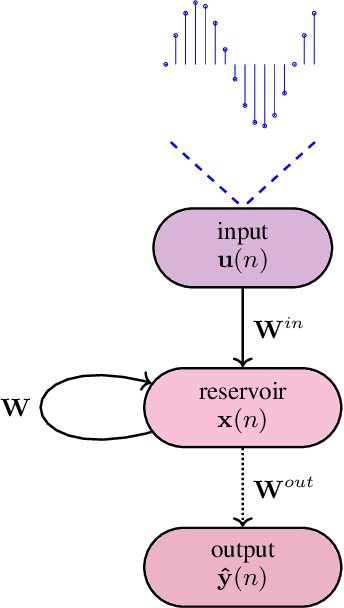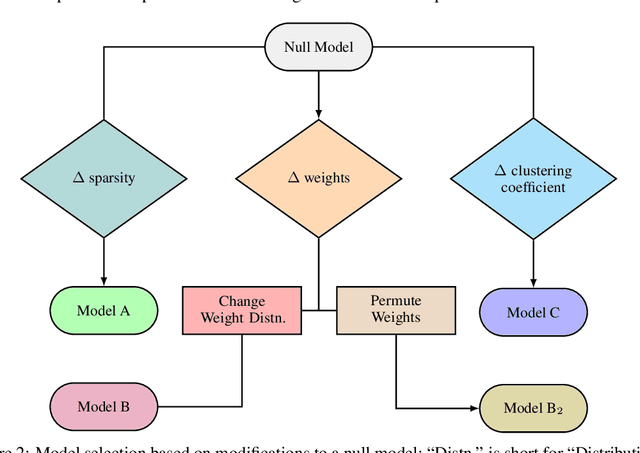Using Connectome Features to Constrain Echo State Networks
Paper and Code
Jun 05, 2022



We report an improvement to the conventional Echo State Network (ESN), which already achieves competitive performance in one-dimensional time series prediction of dynamical systems. Our model -- a 20$\%$-dense ESN with reservoir weights derived from a fruit fly connectome (and from its bootstrapped distribution) -- yields superior performance on a chaotic time series prediction task, and furthermore alleviates the ESN's high-variance problem. We also find that an arbitrary positioning of weights can degrade ESN performance and variance; and that this can be remedied in particular by employing connectome-derived weight positions. Herein we consider four connectome features -- namely, the sparsity, positioning, distribution, and clustering of weights -- and construct corresponding model classes (A, B, B${}_2$, C) from an appropriate null model ESN; one with its reservoir layer replaced by a fruit fly connectivity matrix. After tuning relevant hyperparameters and selecting the best instance of each model class, we train and validate all models for multi-step prediction on size-variants (50, 250, 500, and 750 training input steps) of the Mackey-Glass chaotic time series; and compute their performance (Mean-Squared Error) and variance across train-validate trials.
 Add to Chrome
Add to Chrome Add to Firefox
Add to Firefox Add to Edge
Add to Edge